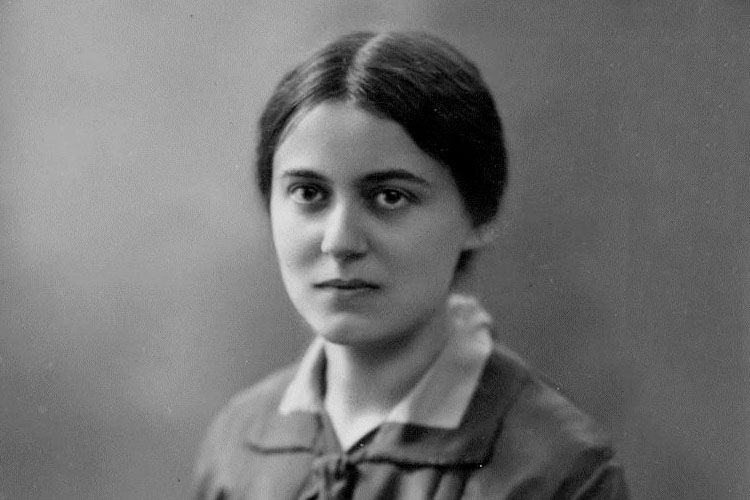Feast Day: 9 August
Childhood
Saint Teresa Benedicta of The Cross (more famously knows as Edith Stein) was known as a highly intelligent woman, notable for a towering intellect and deep philosophical thoughtfulness. These gifts made her gravitate towards the pursuit of study and earned a degree with highest honors from Gottingen University. She went further in earning a doctorate on the human trait of empathy.
Academic Life
St Teresa big questions and intellect often turned to figure out what the ultimate purpose was in life, where we all came from and where we were all going. It wasn’t until she came across the autobiography of St. Teresa of Avila that her seeking for truth found its answer in the Catholic Church. Having read the book, she is noted to have said to herself “This is the truth”, and was soon afterwards baptised in the Catholic Church on January, 1922.
Convent Life
She went on to lecture at a Dominican school and spent much of the time there studying the works of St Thomas Aquinas in depth, finally taking up a position in a university to teach in 1932.
Being an ethnically Jewish woman in the time that Nazism was on the rise, her time teaching became more and more difficult and ultimately ended her career. Eventually, in 1934 she entered a Carmelite convent, taking the name “Teresa Benedicta of the Cross”. She desired this name to be a symbol of her suffering that she could offer up for the sake of others. In particular, she saw it as her calling to pray for the Jewish people whose fate she could foresee unraveling towards a terrible demise.
“I ask the Lord to accept my life and my death,” she wrote, “so that the Lord will be accepted by his people and that his kingdom may come in glory, for the salvation of Germany and the peace of the world.”
In her time at the convent she wrote further works, most notably her study of St. John of the Cross which she entitled “The Science of the Cross”.
Arrest
As Nazi influence and power grew more prominent, Teresa began to see her fate unfolding before her. She accepted this with grace and resolution, saying:
“Even now I accept the death that God has prepared for me in complete submission and with joy as being his most holy will for me. I ask the Lord to accept my life and my death … so that the Lord will be accepted by His people and that His Kingdom may come in glory, for the salvation of Germany and the peace of the world“
Teresa was soon arrested along with her sister Rosa and the members of her religious community. She was taken to Auschwitz on August 9, 1942 where she was later gassed to death.
Why St Teresa Benedicta is important
A reflection from someone in our young Catholic community
Many years later in 1998 Pope John Paul II canonized her and later bestowed her the tile of a co-patroness of Europe. Saint Teresa stands as an example of strength and trust in God amidst a horrific evil. In the midst of this darkness and ugliness there stood an example of light and beauty. She carried the light of prayer and intercession for her fellow people who were being brutally executed and is now, after death, a powerful intercessor in the courts of heaven.
